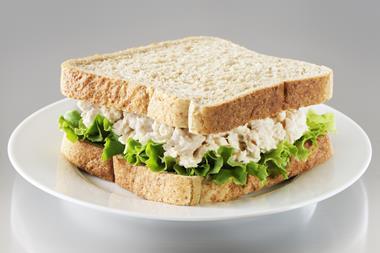
Introducing a salt and sugar tax and banning all adverts for ‘less healthy’ food are among the recommendations to government from the House of Lords Food, Diet and Obesity Committee.
In a report titled ‘Recipe for health: a plan to fix our broken food system’ which was published today (24 October), the committee demands that the government develops a comprehensive, integrated long-term strategy to fix the UK food system which is underpinned by a new legislative framework.
This includes making large food businesses report on the healthiness of their sales and excluding businesses that derive more than a defined share of sales from less healthy products from any discussions on the formation of policy on food, diet, and obesity prevention.
The committee was appointed by the House of Lords at the start of the year to consider the role of foods, such as ultra-processed foods (UPFs) and those high in fat, salt, and sugar (HFSS), in a healthy diet and tackling obesity with the aim of publishing a report by the end of November. The report was published following several evidence gathering sessions.
Two thirds of adults are overweight and just under a third are living with obesity, according to the report, which claims there has been an ‘utter failure to tackle this crisis’. It stated that between 1992 and 2020, successive governments proposed nearly 700 wide-ranging policies to tackle obesity in England, but obesity has continued to rise.
It also claims that voluntary efforts to promote healthier food have failed and that mandatory regulation must be introduced to tackle this.
Key actions recommended as part of the new strategy include:
- Making large food businesses report on the healthiness of their sales and excluding businesses that derive more than a defined share of sales from less healthy products from any discussions on the formation of policy on food, diet, and obesity prevention
- Giving the Food Standards Agency (FSA) independent oversight of the food system
- Introducing a salt and sugar reformulation tax on food manufacturers, building on the success of the Soft Drinks Industry Levy. The Government should consider how to use the revenue to make healthier food cheaper, particularly for people living with food insecurity
- Banning the advertising of less healthy food across all media by the end of this Parliament, following the planned 9pm watershed and ban on paid-for online advertising in October 2025
- Commissioning further research into the links between ultra-processed foods (UPFs) and adverse health outcomes and reviewing dietary guidelines to reflect any new evidence
- Immediately developing an ambitious strategy for maternal and infant nutrition and driving up compliance with the school food standards to help break the vicious cycle by which children living with obesity are five times more likely to become adults with obesity
- Enabling auto-enrolment for Healthy Start and free school meals and reviewing the costs and benefits to public health of increasing funding and widening eligibility for both schemes, to help families in poverty afford healthier food.
“Over the last 30 years successive governments have failed to reduce obesity rates, despite hundreds of policy initiatives. This failure is largely due to policies that focused on personal choice and responsibility out of misguided fears of the ‘nanny state’. Both the Government and the food industry must take responsibility for what has gone wrong and take urgent steps to put it right,” said Baroness Walmsley, chair of the Food, Diet and Obesity Committee.
“We hope, given the recent comments from the Prime Minister, Lord Darzi and the Secretary of State for Health, that there is now an appetite to shift towards prevention of ill health. We urge the Government to look favourably on our plan to fix our broken food system and accept that not only is it cost-effective, but that it would lead to a lot less human misery.”
Ultra-processed foods debate
The UPF debate continues garnering mixed opinions from the baking industry – as seen just last week in a webinar hosted by British Baker on the topic.
The report didn’t draw any conclusions on the conversation but recognised that it is a matter of ‘intensive public discussion and scientific debate’. It stated that rapidly growing epidemiological evidence showing a correlation between consumption of UPFs and poor health outcomes is alarming. But it added that beyond energy and nutrient content, causal links between other properties of UPFs and poor health outcomes have not at the present time been clearly demonstrated.
As such, it called for further research into UPFs but added that the need for further research ‘must not be an excuse for inaction’.
“The food industry must be held to account now for the rise in unhealthy diets and obesity. The Government has already taken some steps to regulate HFSS products, many of which are also UPFs. It must now go much further,” it stated. “Furthermore, the Government should commit as part of its new comprehensive food strategy to tackling the over-consumption of such less healthy foods, and increasing consumption of healthier, largely unprocessed and minimally processed foods, ensuring a healthy and affordable diet for all.”
British Baker will be taking a closer look at the reports and its content, as well as securing reactions from the baking industry, so keep an eye on our website for the latest updates.
































No comments yet